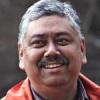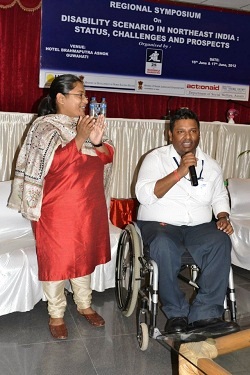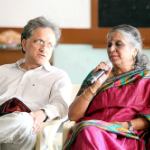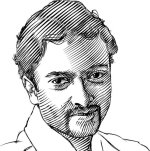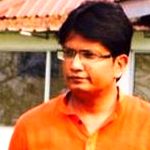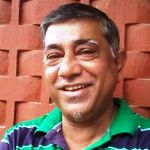“Haven’t we seen this movie before?” asked a kid in my neighbourhood once, watching on television the Republic Day parade at Red Fort, New Delhi. For the kid, and a generation of children of our region, growing up without experiencing the excitement of celebrating Republic Day, the colourful parade at the Red Fort could be mistaken for a movie scene.
For over three decades now, on 26 th January or 15th August when the rest of the nation goes on a celebratory mode, a sombre mood prevails in our region. Far from celebrating the two National Days, most people stay indoors, out of fear, heeding the call given by extremist organisations to boycott the events. And to show that they mean business, the extremist organisations make their presence felt loudly and menacingly around this time. Bomb blasts and sabotage activities invariably rock the state. The public enthusiasm for celebrating the National Days wanes as the situation deteriorates. For the people of our region long inured to living under the shadows of the gun, the shadows get darker and ominous than usual during this time. They react by doing what come instinctly to them …stay indoors.
Throughout my years in the civil services, I have found that on the eve of Republic Day and Independence Day, except for my colleagues and office staff, there is hardly anyone around to help the administration organise the public programmes. In this atmosphere of fear and insecurity, nobody could perhaps be blamed for shying away from the official celebrations. There is a lurking apprehension in the minds of those who attend the events, mostly Government officials and their families, that something may go wrong at any moment.
The tragic incident of 15 th August 2004 at Dhemaji is a pointer to how things could go horribly wrong within a moment. In what is regarded as the blackest day in the contemporary history of Assam, 13 persons, including 9 school children were killed in a bomb blast set off with a Programmable Time Device by ULFA at the parade ground of Dhemaji just before the main programme.
The Dhemaji incident marked a watershed in the public perception of an extremist organisation and its ruthless character. The administration learnt a lesson at terrible cost never to be complacent even when extremism is on the decline. What may appear odd, now even the empty parade grounds at all district and sub divisional headquarters of the state are guarded round the clock throughout the year. Further, just before the National Days, as a security drill, the parade grounds are dug up by excavators for any explosive with Programmable Time Device like the one used in Dhemaji. For officials of the police and civil administration, the countdown to the two National days becomes a sheer nightmare as along with the hectic preparations for the official functions, they also have to deal with the deteriorating security situation around this time. An elaborate security plan is put in place. Suddenly the state appears to be under siege. Police check points come up all over the towns and sensitive locations. Pillion riding on two wheelers is banned. Trains are not allowed to run during the night. Ironically, our personal freedoms get restricted during the time we celebrate our nation’s freedom.
The situation around this time puts a Government official under great stress. One never knows what is in store for him and quite unexpectedly, sometimes an ordinary person becomes a hero overnight. During my tenure as Circle Officer at Naharkatiya, Dibrugarh District, there was a night watchman at our office, a young fellow called Dogra who was often taunted by the other staff for not doing his duty at night. There would be friendly banter over this issue with Dogra turning red with fury and denying the accusation of his colleagues. Everybody would laugh at the expense of the poor lad. After my transfer from Naharkatiya, that year, on the night before Independence Day, a group of extremists sneaked into the Circle Office in the heart of the town and attempted to set the building on fire. They came across Dogra and fired at him. One bullet hit him on the abdomen and another on his arm. Dogra made a hue and cry and other office staff from the adjacent barracks rushed to his aid. The extremists fled the scene and the building was saved. Dogra was rushed to hospital; he survived the gunshots. The next day on Independence Day, Dogra was catapulted into the ranks of a hero. As a reward for his valiant efforts, he was promoted from a night watchman to a peon.
During two decades of working in the field, the only time I ever had something close to an encounter with extremists was during my tenure as Circle Officer at Bhuragaon, Morigaon District.
On the afternoon of 14th August 1997, I was in my chamber, discussing some official matter with two lat mandals. It was a bazaar day; there were many people that day in my office. The preparations for the next day’s Independence Day function had been completed. Bhuragaon, inhabited mostly by immigrant Muslims had no record of much extremist activity in the past. I was in a relaxed mood.
As one of the lat mandals unfolded a cadastral map on my table, I looked out of the window and noticed three youths enter the campus on bicycles. They parked their bicycles in front of the steps of the office and walked through the open corridor towards my chamber. There was something unusual about their movement-- a kind of briskness that was out of place in that languid rural environment. In a sea of lungis, they were the only ones wearing jeans. I also noticed that they hadn’t locked their cycles.
The youths entered my room without permission. One of them, a short stocky fellow seemed to be the leader. His eyes constantly kept flitting across the room. He stepped forward and with a jerky movement, handed a magazine to me. On its masthead inscribed in bold red letters was the word Swadhinata. A jolt went through me. It was the mouthpiece of ULFA. The three young men belonged to ULFA.
The two lat mandals hurriedly folded their maps and chithas and jamabandhis and excused themselves away from the room. For a few seconds, I was unable to say anything. Never before had I ever come across any active member of the feared organization. And here there were three of them in my chamber on the eve of Independence Day. Have they come to abduct me?
The short fellow was the first to speak.
“Revolutionary greetings to you, Sir”, he said.
“Thanks”, I said.” What can I do for you? I said gathering myself.
“Sir, we have come to warn you not to unfurl the Tricolour tomorrow”, the short fellow said.
“Well, it’s not possible for me to do that,” I pleaded.
“In that case, we would not hesitate to treat you as our adversary,” another fellow growled.
I tried to reason with the guys about my duty. Even before, I could finish my argument; the short fellow cut me short.
“We know what you will say. We don’t accept that. Please don’t consider this as an empty threat. Once again, we request you not to unfurl the tricolour tomorrow”.
The short fellow gave a signal to the other two and the three ULFA members stormed out of the room.
My first reaction as the guys left the room was of great relief.They didn’t take me away.
As soon as the ULFA guys went out of the campus, my office staff rushed to my room. They were a petrified lot.
“What do they want?”
“They don’t want me to unfurl the national flag tomorrow.” I said.
“Sir, what do we do now?”
“Nothing less than what we have already planned. Those guys did their duty. Let us do ours.” I said pretending to be nonchalant about the threat from the extremists.
I called the local OC of the police station; a senior sub inspector called Buragohain and apprised him of the incident.
Buragohain gave me a mysterious smile.
“Don’t worry, Sir. They won’t do anything. It is just an empty threat.
My men will be on constant patrol through the night. Everything will be fine. I promise you”.
My fear subsided by the assurance given by the police officer. As a precaution, I instructed Surya, the office peon to keep the two Tricolours of the office separately. Even if someone came and forcibly took away one, the other could be used. Surya followed my advice and hid one flag behind a stack of old files.
Meanwhile, that afternoon, I heard that the ULFA members had gone around to all the Government offices and schools of the area and similarly warned everyone not to hoist the national flag.
Some headmasters came to me for advice.
I repeated what Buragohain had told me and told them not to worry.
That night I had a sleepless night. Any sound of a bike in the distant startled me. Have they come for me?
True to the assurance by the old sub inspector, nothing happened. The next morning, I hoisted the National Flag in a small public ceremony attended by my office staff and a few leading persons of the area. All government offices and schools of the area also hoisted the Tricolour without any trouble. There were no signs of the ULFA members anywhere.
Some few days later, I heard that the three ULFA members had formally surrendered before the Superintendent of Police of the district.
The warning to the Government officials on the eve of Independence Day seemed to be the last flicker of their revolutionary zeal before they joined the “mainstream”.
Later, at a religious congregation, I met the small stocky fellow who now happened to be one of the members of the organizing committee. He appeared quite different in starched dhoti and sandal wood paste on his forehead. He greeted me warmly.
“You really frightened me that day,” I said
“Frightened you, Sir? We ourselves were scared stiff of getting caught by the police and could hardly wait to get out of your office,” he said.
* * *
All this seems so far away from the time, during my childhood, more than forty years ago, when my father used to take me to the Judges Field at Guwahati where the main Government functions were held on both days. A large crowd always assembled at the field and bamboo barricades were erected to prevent the crowd spilling over to the area where the parade took place. An air of festivity marked the occasion. Because of my short stature and the thick crowd in front, I could not see what was happening on the field. I kept pestering my father to pick me up and show me the parade. My father not used to carrying me occasionally relented and hoisted me up on his shoulders. For few precious moments perched on his shoulders, I caught fleeting glimpses of the colourful parade on the field. Like montage shots in a movie, these images of pomp and grandeur created a lasting impression on my mind.
During my teenage days, the charms of those two days also lay in that great boon of freedom -- free movie shows at the city’s cinema halls. I remember, one Independence Day rushing straight from the Judges Field as soon as the parade ended to a movie hall at Paltan Bazar with a group of neighbourhood boys led by Raju, our leader. We reached the hall on time but to our dismay found that almost all the seats had been occupied.
Somehow we managed to secure our seats on the front row of the hall which in the fitness of things we used to call Gandhi Class. Nevertheless, we enjoyed the free movie show, a typical Bollywood song and dance spectacle, amidst Raju’s witty ripostes to the dialogues of the actors on screen. Raju, a great movie buff could deliver lines from Hindi movies verbatim. He put his talents to good use in his later years. Raju went on to become the popular Assamese cinema and television actor Jayanta Das.
The following year, the Assam Agitation began. Boycotting the official Independence Day and Republic Day functions became part of the agitational programme. Our carefree days were cut short. Like all youths of my generation, I too was caught up in the storm that swept through Assam and lost no time in joining the Agitation.
What historians today regard as one of post independent India’s great mass movements also had several negative effects on Assamese society. The boycott of the celebrations of the two National days during the six year long agitation was one of them. The emotional appeal of the leaders of the agitation to boycott the celebrations was later replaced by veiled threats by extremist organisations for doing the same. Both had the same effect of making people stay away from the celebrations.
Sometime back, a clip was shown in a local news channel about Assamese youth of the present generation smart and knowledgeable about the world but shaking their heads in ignorance when asked about our own national heroes, Lachit Barphukan and Chilarai. One of the reasons for the younger generation’s blasé attitude towards their own history and legacy lies in its marked deficit of national pride. Few events symbolise that national pride more evocatively and visibly than the Republic Day and Independence Day celebrations. The powerful images make us feel proud of ourselves as a nation and a people. A generation has grown up without the experience of being stirred by patriotism during celebrations of the National Days.
This dismal state of affairs is the outcome of the politics of our region and all that have happened since the last three decades.
Amidst the gloom, there is however a ray of hope. The last few years have witnessed small groups of people coming out in procession on the streets of our towns and villages on both days. One of the first such efforts took place in 1997 at a time when extremist activities were at its peak. A small group of journalists of the Guwahati Press Club went on a procession through the deserted streets of Guwahati holding aloft Tricolours and placards, in defiance of the extremist organisations’ ban on the celebrations of Independence Day. Ever since that humble beginning, every year the Guwahati Press Club organises a procession through the streets of Guwahati on Independence Day. Now many organisations organise similar processions through the streets of the region on both National Days.
Gradually, things appear to be changing. People are once again coming on their own to the parade grounds to celebrate their freedom. For officials of the administration nothing is more satisfactory, no effort more fulfilling, than a good crowd behind the bamboo barricades.

